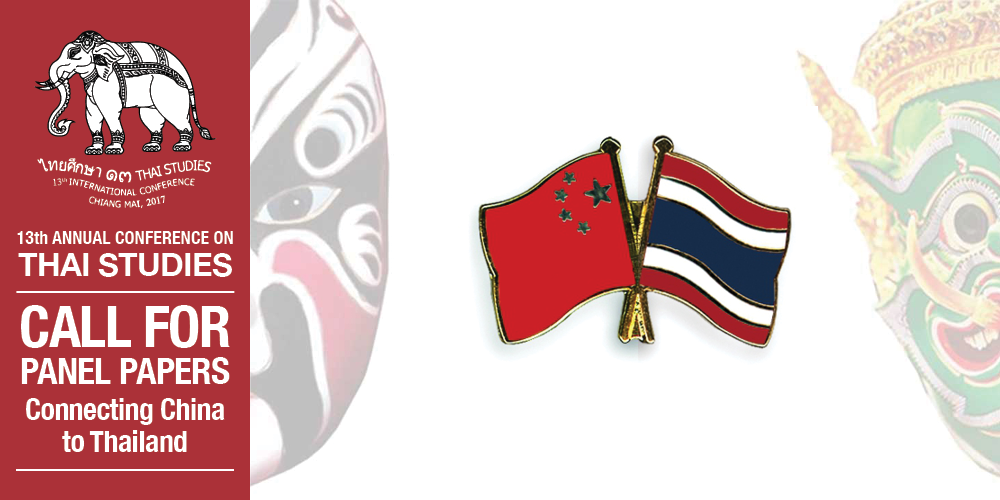
Panel Conveners:
Prof. Li Ping, Sichuan Provincial Research Institute of Thai Studies
Dr. Fu Jing, Sichuan Provincial Research Institute of Thai Studies
This panel aims to raise the awareness and share the knowledge of the connectivity between Thailand and China from ethnology, sociology, culture and linguistics perspectives. The panel explains the theme of Connecting China to Thailand in two dimensions, linking both ‘the west’ and ‘the east’ corridors from China to Thailand, which are referred to the ‘one-belt- one-road’ initiative of the China’s national development strategy and framework. The research on the ‘east corridor’ linking between China and Thailand focuses on how the Hakkas immigrated from southeast China to Thailand, and how they socially, culturally and linguistically influenced the Thais. The study of the ‘west corridor’ connecting southwest China with Thailand explores the evolution of ethnic minorities or hill tribes such as Mao, Yi, Yao etc. from ethnological, social and cultural perspectives.
The theme proposed for the panel session of ICTS13 investigates the ‘as-is’ and ‘to-be’ connectivity between China and Thailand in three focused domains, which are languages and cultures, tourism business, and international education, hoping to bring global wisdom and best practices to contribute to a global presence and optimal presentation of Thailand as an international and regional hub, meanwhile, to develop further collaborations between China and Thailand:
Language and Culture, which explores the roles of how China and Thailand can be linguistically and culturally linked. Issues to be covered but are not limited to:
Tourism Business, which could integrate an ethnographic and social study which identify cultural, marketing and communicative challenges that Thai tourism and hospitality sectors are facing in attracting international customers. Issues to be covered but are not limited to:
International Education, which could involve social, multilingual, technical and cultural education to enhance teaching and learning in order to improve Thai workforce competency towards becoming international knowledge workers. Issues to be covered but are not limited to:
Keywords: China-Thai Connectivity, Language and Culture, Tourism Business, International Education
Scholars from the mentioned themes are expected to send their individual abstracts directly to this panel conveners before November 15, 2016 to liping@cdu.edu.cn; fujing@cdu.edu.cn